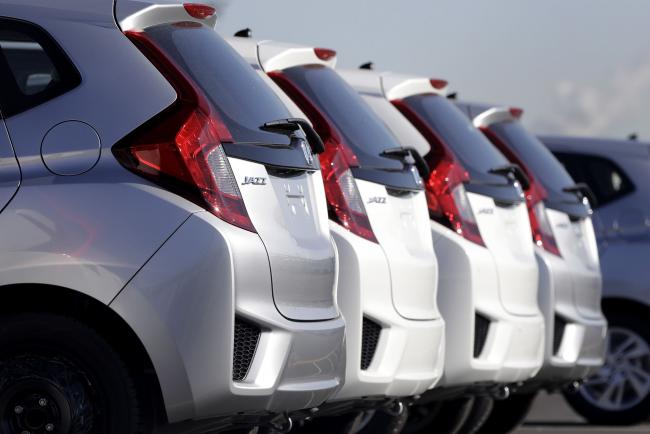(Bloomberg) -- Terms of Trade is a daily newsletter that untangles a world embroiled in trade wars. Sign up here.
Car sales by Japanese automakers in South Korea slumped 32% in July from the prior month, after a trade spat between the countries turned increasingly acrimonious.
Honda Motor Co.’s vehicle registrations dropped 42%, while Toyota Motor Corp. saw a decline of 38%, according to data from the Korea Automobile Importers & Distributors Association (KAIDA). Even so, Japanese car sales from January through July are up 6.7% from a year earlier.
Consumers in South Korea have boycotted some Japanese travel and consumer products in response to Prime Minister Shinzo Abe’s restrictions on sales to South Korea of materials for high-tech components. A drop in automobile sales suggests South Koreans are becoming increasingly willing to halt spending on big-ticket items because of the spat.
Yoon Dae-sung, vice chairman of KAIDA, said in a statement that the beginning of the holiday season and “decline of some brands” weighed on an increase in volumes and introduction of new cars. He didn’t single out any manufacturers or countries of origin.
“We cannot ignore the consequences of political issues between Japan and Korea that might lead to the sales downturn in Korea,” said Yoshiaki Kawano, an auto analyst at IHS Markit. He added that the market in South Korea hasn’t been doing well due to the sluggish economy, which has hurt sales of domestic vehicles and imports despite government efforts to reduce taxes on vehicles.
Total imported car sales in South Korea rose 0.3% in July from the prior month. Mercedes-Benz sales rose 11% in the period, while BMW gained 14%. South Korea is Japan’s third-largest export market, worth 5.79 trillion yen ($54.7 billion) in trade last year.“
“Various market factors have an influence sales, and it can’t be said completely that the recent Japan-Korea relationship is the main reason for the decline in sales,” said Kayo Doi, a spokeswoman for Toyota. A representative for Honda didn’t immediately respond to a request for comment.
Last week, Japan removed its trading partner from a list of trusted export destinations, and said the measure will take effect Aug. 28. South Korea fired back by saying it would take Japan off of its easy-trade list.
The latest flare-up between the countries happened after South Korean courts seized assets belonging to Japanese companies they held liable for cases of forced labor during the 1910-1945 period of colonization. Although Abe has denied that the export controls are retaliation, the spat has fanned nationalistic sentiments in both countries.
